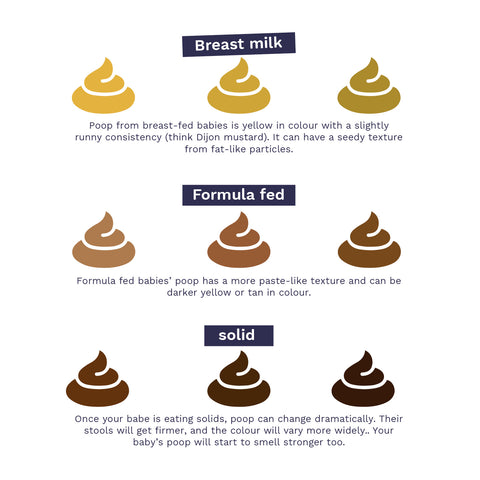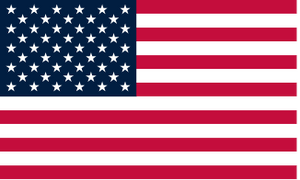We have scoop on your baby’s poop. Before getting pregnant or becoming a parent you probably had no idea how varied the contents of your little one’s nappies could be? Learn what your baby’s poop can tell you about their development stage.

Breastfed babies
Poop from breast-fed babies is yellow in colour with a slightly runny consistency (think Dijon mustard). It can have a seedy texture from fat-like particles. Breastmilk is a natural laxative, so a breastmilk fed baby aged between 4 days and 6 weeks should pass at least two poos a day. If not, or your baby hasn’t pooed in the past 24 to 48 hours, the NHS advises that you speak to your midwife or health visitor.
Formula fed babies
Formula fed babies’ poop has a more paste-like consistency and can be a darker yellow or tan colour. The poo of a formula-fed baby will usually be firmer and smellier too. Formula fed babies should be pooing daily.
Weaned babies
Once your baby is eating solids, poop can change dramatically. Their stools will get firmer, and the colour will vary more widely, too. Your baby’s poop will start to smell stronger and will also change so they may go more or less often and the poo itself change to become more like yours.
Pura babies
Pura’s plastic-free, allergy friendly wipes are perfect for cleaning up the smallest or biggest messes, without making one for the planet. They are made with biodegradable plant-fibres and contain only 99% water and organic aloe vera. Our diapers, available from newborn up to size 6, are also designed with your developing baby in mind. They’re super absorbent and organic cotton enhanced and made more sustainably with less plastic – perfect for even the biggest of explosions or poonamis.








